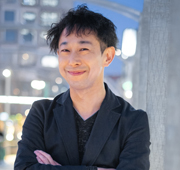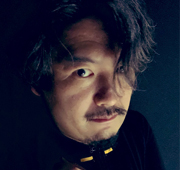VISUAL AND INTERACTIVE COMPUTING
Selim Balcisoy, Sabanci University, Turkey
Christophe Charrier, UNICAEN, France
Amal Dev P, Telecom Paris, France
Rae Earnshaw, University of Bradford, UK
Marius Erdt, Fraunhofer Singapore, Singapore
Thaddeus Eze, University of Chester, UK
Issei Fujishiro, Keio University, Japan
Akemi Galvez-Tomida, University of Cantabria, Spain
Masaaki Iiyama, Kyoto University, Japan
Takayuki Itoh, Ochanomizu University, Japan
Xiaogang Jin, State Key Lab of CAD\&CG, Zhejiang University, China
Nigel John, University of Chester, UK
Kouichi Konno, Iwate University, Japan
Michel Krämer, Fraunhofer IGD, Germany
Arjan Kuijper, TU Darmstadt, Germany
Xiaoyang Mao, University of Yamanashi, Japan
Kazunori Miyata, Japan Advanced Institute of Science and Technology, Japan
Shinya Miyazaki, Chukyo University, Japan
Jeffrey Morris, Texas A&M University, USA
Ming-Yong Pang, Dep. of Educational Tech., Nanjing Normal Univ., China
Simant Prakoonwit, Bournemouth University, UK
Julia Rayz, Purdue University, USA
Michio Shiraishi, Toho University, Japan
Alexei Sourin, Nanyang Technological University, Singapore
Hiroki Takahashi, The University of Electro-Communications, Japan
Daniel Thalmann, Ecole Polytechnique Fédérale de Lausanne, Switzerland
Masahiro Toyoura, University of Yamanashi, Japan
Krzysztof Walczak, Poznań University of Economics and Business, Poland
Adam Westerski, Universidad Politécnica de Madrid, Spain
Zhongke Wu, BNU, China
Norimasa Yoshida, Nihon University, Japan
Qingshu Yuan, Hangzhou Normal University, China
Jiri Zara, Czech Technical University in Prague, Czech Republic
Jiang Yu Zheng, Indiana University Purdue University Indianapolis, USA
Nobuhiko Mukai, Tokyo City University, Japan
Youngha Chang, Tokyo City University, Japan
Tsukasa Kikuchi, Tokyo University of Technology, Japan
Tomoya Ito, Hachinohe Institute of Technology, Japan
Mie Sato, Utsunomiya University, Japan
Tsukasa Fukusato, The University of Tokyo, Japan
Syuhei Sato, Hosei University, Japan
Kaisei Sakurai, Dwango, Japan
Yuki Igarashi, Ochanomizu University, Japan
Hiroyuki Kubo, Chiba University
Akinobu Maejima, OLM Digital, Inc., Japan
Chao Zhang, University of Fukui, Japan
Naoki Kita, Tokyo University of Agriculture and Technology, Japan
COGNITIVE HUMAN-MACHINE INTERACTION
Andres Iglesias Prieto, Universidad de Cantabria, Spain
Khng Kiat Hui, National Institute of Education, Singapore
Henry Johan, Fraunhofer Singapore, Singapore
Anastasia Kovaleva, P.K. Anokhin Research Institute of Normal Physiology, Russia
Zirui Lan, Fraunhofer Singapore, Singapore
Fan Li, The Hong Kong Polytechnic University
Yisi Liu, Singapore Polytechnic, Singapore
Zhigeng Pan, Hangzhou Normal University, China
Reinhold Scherer, University of Essex, UK
Olga Sourina, Fraunhofer Singapore, NTU, Singapore
Haoqi Sun, Harvard University, USA
Hassan Ugail, University of Bradford, UK
Ivan Volosyak, Rhine-Waal University of Applied Sciences, Germany
Matthias Woelfel, Karlsruhe University of Applied Sciences, Germany
Jianhua Zhang, Oslo Metropolitan University, Norway
Jianmin Zheng, Nanyang Technological University, Singapore
CYBERSECURITY AND BIOMETRICS
Najwa Ben-Amara, Ecole Nationale d'Ingénieurs de Sousse, Tunisia
Francesco Buccafurri, UNIRC, Italy
Christophe Charrier, Normandie Université, France
Rafal Doroz, University of Silesia, Poland
Marina Gavrilova, University of Calgary, Canada
Igor Kotenko, SPIIRAS, Russia
Abir Mhenni, University of Sousse-Tunisia, Tunisia
Kumar Murty, University of Toronto, Canada
Amine Nait-Ali, Université Paris-Est Créteil (UPEC), France
Christophe Rosenberger, ENSICAEN, France
Andrew Teoh, Yonsei University, South Korea
Krzysztof Wrobel, University of Silesia / Institute of Computer Science, Poland
 Cyberworlds 2022
Cyberworlds 2022





